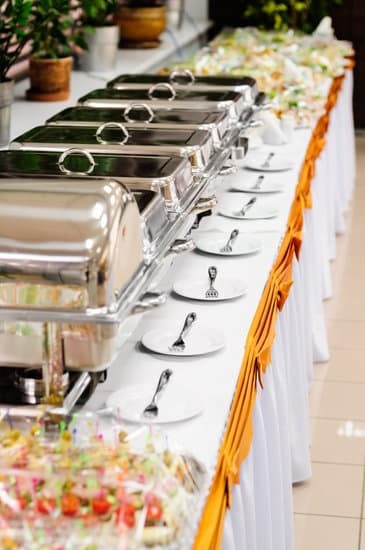A courthouse wedding, also known as a civil ceremony, is a simple and cost-effective way for couples to legally tie the knot. This type of wedding takes place at a local courthouse or city hall, typically in front of a judge or court official.
One of the most common questions that arise in planning a courthouse wedding is, “How many people can come to a courthouse wedding?” The answer varies depending on the specific courthouse and its policies, but generally, there are limitations on the number of guests allowed.
Many couples opt for a courthouse wedding for various reasons. Some choose this route due to budget constraints, while others prefer the simplicity and reduced stress associated with planning a smaller ceremony. Whatever the reason may be, understanding the ins and outs of a courtroom wedding can help couples decide whether it’s the right choice for them.
In this article section, we’ll delve into what exactly constitutes a courthouse wedding and explore the benefits and limitations that come with it. From discussing legal requirements to exploring guest limitations and alternative options for accommodating additional guests, we aim to provide valuable insights for couples considering this type of nuptial ceremony. So let’s explore further into what makes a courthouse wedding unique and intimate.
Benefits of Having a Courthouse Wedding
Courthouse weddings have become a popular choice for couples looking to tie the knot in a simple, cost-effective, and less stressful manner. This type of wedding typically takes place at a local government building, where a judge or justice of the peace officiates the ceremony. One of the major benefits of having a courthouse wedding is the cost-effectiveness.
The expenses associated with traditional weddings, such as venue rental, catering, and decor, are significantly reduced with a courthouse wedding. This allows couples to allocate their budget towards other priorities like purchasing a home or starting a family.
Another advantage of opting for a courthouse wedding is the minimal stress and planning involved. With fewer details to coordinate and decisions to make, couples can focus on the significance of their commitment to one another without feeling overwhelmed by logistical concerns. Additionally, courthouse weddings are legally binding, providing couples with the assurance that their union is recognized and protected by law.
Despite these benefits, there are some limitations to consider when it comes to having a courthouse wedding. One significant limitation is the restriction on the number of guests allowed to attend. Courthouses generally have limited space for guests, so it’s important for couples to carefully consider how many people can come to their courthouse wedding.
This guest limit can vary depending on the specific courthouse’s capacity and regulations. Typically, courthouses can accommodate up to 20-30 guests for a wedding ceremony. However, it’s essential for couples to inquire with their local courthouse about their specific guest limit before finalizing their guest list.
| Courthouse Wedding Benefit | Details |
|---|---|
| Cost-effectiveness | Allows budget allocation towards other priorities |
| Less stress and planning | Minimal logistical concerns |
| Legal and binding | Recognition and protection by law |
Limitations of a Courthouse Wedding
When it comes to planning a wedding, many couples may find that a courthouse wedding has its limitations, particularly in terms of the number of guests allowed to attend. This section will explore the constraints and considerations related to guest count when opting for a courthouse wedding.
Restriction on the Number of Guests
One of the main limitations of having a courthouse wedding is the restriction on the number of guests that can attend. Courthouses typically have limited space in their ceremony rooms, which means that only a small number of guests can be accommodated. In most cases, couples may be allowed to invite only a handful of close family members and friends to witness the ceremony.
Limited Venue Options
Another factor contributing to the limitation on guest count is the limited venue options available for courthouse weddings. Unlike traditional weddings that can be held at larger venues with ample seating capacity, courthouses are designed for official legal proceedings and may not have the space to accommodate large wedding parties.
Less Opportunity for Personalization
In addition to restrictions on guest count, courthouse weddings also offer less opportunity for personalization compared to traditional weddings. Couples may have limited control over décor, music, and other elements that contribute to creating a personalized and memorable experience for their guests.
Considering these limitations, couples who opt for a courthouse wedding must carefully consider how many people they can invite while navigating through these constraints. Nevertheless, with careful planning and creative solutions, couples can still create meaningful and intimate experiences for both themselves and their guests within these limitations.
Legal Requirements for a Courthouse Wedding
Marriage License and Documentation
One of the most important legal requirements for a courthouse wedding is obtaining a marriage license. This document is essential for legally binding your marriage, and the process for obtaining it can vary by state or local jurisdiction. Make sure to research the specific requirements in your area and allow enough time to obtain the necessary documentation before your wedding date. Additionally, be prepared to provide identification and complete any required paperwork at the courthouse.
Waiting Period
Another legal requirement to consider is any waiting period imposed by your local government. Some jurisdictions have a waiting period between obtaining the marriage license and being able to have the ceremony. This waiting period can range from a few days to several weeks, so it’s crucial to factor this into your wedding planning timeline.
Officiant Requirements
In most cases, you will need an officiant to perform the wedding ceremony at the courthouse. This person could be a judge, magistrate, or other authorized official depending on your location. It’s important to check with the courthouse or local government regarding officiant requirements and availability.
Some courthouses may have designated officials who can perform ceremonies, while others may require you to bring in your own officiant. Understanding these requirements will help ensure that your courthouse wedding meets all legal standards.
Overall, understanding the legal requirements for a courthouse wedding is essential for making sure that your marriage is legally binding and recognized. By taking the time to research and fulfill these requirements, you can ensure that your special day goes smoothly and in accordance with all necessary regulations.
How Many People Can Come to a Courthouse Wedding
When planning a courthouse wedding, one of the most important factors to consider is how many people can attend the ceremony. Courthouse ceremonies are typically small and intimate, with a limited number of guests allowed. The exact number of guests permitted can vary depending on the courthouse’s specific rules and regulations, as well as the size of the venue itself.
In general, most courthouses have a guest limit ranging from 10 to 20 people. This includes the couple getting married, their witnesses, and any additional guests they choose to invite. Factors that may affect the guest limit include the size of the courtroom or designated wedding area, as well as any COVID-19 restrictions or guidelines in place at the time of the ceremony.
When deciding on the guest list for a courthouse wedding, it’s important for couples to prioritize their closest family members and friends. While it may be challenging to narrow down the guest list, keeping the ceremony small allows for a more intimate and meaningful experience. Couples should consider inviting those who have been most supportive and influential in their lives.
Ultimately, while there may be limitations on how many people can attend a courthouse wedding, couples can still find alternative ways to include additional guests in their celebration. Whether it’s hosting a post-ceremony gathering at another location or incorporating virtual attendees through live streaming, there are creative options for including loved ones in this special occasion.
Alternative Options for Additional Guests
When it comes to a courthouse wedding, there are often limitations on the number of guests that can attend. Typically, a courthouse wedding may only allow for a small number of guests, such as witnesses and immediate family members. The exact number allowed can vary depending on the specific courthouse and its capacity. However, for couples who want to include more guests in their celebration, there are alternative options to consider.
Here are some alternative options for additional guests at a courthouse wedding:
- Post-ceremony celebration at a separate location: After the courthouse ceremony, the couple can plan a post-ceremony celebration at another location such as a restaurant or event space. This allows for more guests to join in the festivities after the legal ceremony has taken place.
- Holding a larger reception at a later date: Another option is to have a larger reception at a later date. This gives the couple the opportunity to celebrate with all of their friends and extended family members without being constrained by the limitations of the courthouse setting.
- Incorporating virtual attendees: In today’s digital age, couples can also consider incorporating virtual attendees into their courthouse wedding. Using video conferencing technology, couples can livestream their ceremony to friends and family members who may not be able to attend in person.
By considering these alternative options, couples can still include more people in their celebration even if they choose to have a courthouse wedding with limited guest capacity. It allows them to share their special day with loved ones while embracing the simplicity and intimate setting of a courthouse ceremony.
Making the Most of a Courthouse Wedding
A courthouse wedding may limit the number of guests, but that does not mean it cannot be a special and memorable occasion for the couple. In fact, there are many ways to make the most of a courthouse wedding and create a day that is truly meaningful and unique. Here are some tips for making the most of a courthouse wedding:
- Personal Touches: Even with a limited guest count, couples can still incorporate personal touches to make the day special. Consider writing your own vows, choosing meaningful music for the ceremony, or wearing attire that holds sentimental value.
- Special Considerations: With fewer guests in attendance, couples can take advantage of the intimate setting to create a more personal experience. They can interact more with each guest and spend quality time with those who are present.
- Creating a Memorable Experience: Despite the limitations on guest numbers, couples can focus on creating an unforgettable experience for themselves and their guests. This may include planning a post-ceremony celebration at a separate location or organizing a larger reception at a later date to accommodate additional friends and family.
Ultimately, while there may be restrictions on how many people can come to a courthouse wedding, couples have the opportunity to embrace the simplicity and intimacy of this type of ceremony and create cherished memories that will last a lifetime.
Conclusion
In conclusion, the decision to have a courthouse wedding ultimately depends on the preferences and priorities of the couple. While a courthouse wedding offers several benefits such as cost-effectiveness, reduced stress, and legal validity, there are limitations to consider, including the restriction on the number of guests. Factors such as legal requirements and venue options also play a role in determining whether a courthouse wedding is the right choice for you.
When considering how many people can come to a courthouse wedding, it’s important to keep in mind that most courthouses have limitations on the number of guests allowed. This typically ranges from 10-20 people, including the couple and their witnesses. Factors affecting the guest limit may include space constraints and specific courthouse regulations. When deciding on the guest list, couples should prioritize their closest family members and friends who they cannot imagine getting married without.
For couples who wish to include additional guests beyond what is allowed at the courthouse, there are alternative options to consider. These include having a post-ceremony celebration at a separate location, holding a larger reception at a later date, or incorporating virtual attendees through live streaming.
These alternatives can help ensure that loved ones feel included in the celebration despite not being physically present at the ceremony. Ultimately, with careful planning and consideration of all available options, couples can make the most of their courthouse wedding and create a memorable experience for themselves and their guests.
Frequently Asked Questions
How Many People Can Attend Marriage Ceremony NYC?
In New York City, the number of people who can attend a marriage ceremony varies depending on the location and their specific guidelines. Generally, this can range from just the couple to a limited number of close family and friends.
How Many People Can You Have at a Courthouse Wedding in NJ?
In New Jersey, the number of people allowed at a courthouse wedding also varies by location and their specific regulations. Typically, this may include the couple, a witness or two, and a small number of guests.
How Many Guests Can You Have at NYC Courthouse Wedding?
At a NYC courthouse wedding, the number of guests permitted depends on the individual courthouse’s policies and space limitations. Generally, this may include a limited number of close family and friends to witness the marriage ceremony.

I have been involved in marriages for over 20 years helping couples and singles understand more about them.





